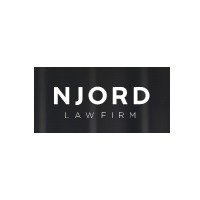Best Restructuring & Insolvency Lawyers in Denmark
Share your needs with us, get contacted by law firms.
Free. Takes 2 min.
Or refine your search by selecting a city:
List of the best lawyers in Denmark
About Restructuring & Insolvency Law in Denmark
Restructuring and insolvency law in Denmark deals with the legal processes and rules that apply when businesses or individuals face financial difficulty or insolvency. Often, this area of law exists to offer solutions for debtors unable to meet their obligations and to protect the rights of creditors. Danish law provides formal mechanisms for both restructuring - attempting to save distressed companies and help them regain viability - and for insolvency proceedings such as bankruptcy, if rehabilitation is not possible. The Danish system emphasizes transparency, creditor protection, and seeking the most effective resolution based on the financial circumstances of the party in difficulty.
Why You May Need a Lawyer
Facing restructuring or insolvency issues can be complex and stressful, whether you are a business owner, a creditor, or an individual borrower. There are several common situations where legal help becomes essential, including:
- If your company is experiencing significant financial loss and you want to explore restructuring options before insolvency.
- If creditors are threatening legal action or have commenced enforcement proceedings against you or your business.
- If you wish to protect your personal assets as a business owner or reduce exposure to liability.
- If you are a creditor seeking to maximize recovery from an insolvent debtor.
- If you are concerned about directors’ or management liability during insolvency proceedings.
- If you require assistance negotiating with creditors, banks, investors, or other stakeholders.
- If you need guidance navigating the formal insolvency or bankruptcy process in Danish courts.
A specialized legal advisor helps ensure your interests are safeguarded, reduces the risk of mistakes, and helps you fully understand your rights and obligations throughout complex proceedings.
Local Laws Overview
Danish restructuring and insolvency laws are primarily governed by the Bankruptcy Act (Konkursloven), along with relevant provisions of the Act on Creditors’ Rights and other financial regulations. Key aspects include:
- Restructuring Proceedings: Corporate restructuring can be initiated voluntarily by the debtor or by creditors. The main aim is to propose a restructuring plan - such as debt reductions, asset sales, or business transfers - subject to approval by creditors and the court.
- Insolvency and Bankruptcy: If rehabilitation is not feasible, insolvency proceedings begin. A court-appointed trustee handles the debtor’s assets, aiming to realize value and distribute proceeds among creditors.
- Moratorium: During formal proceedings, creditors are generally stayed from pursuing individual enforcement actions, providing breathing space for restructuring or orderly liquidation.
- Director and Management Responsibilities: Directors have a duty to file for insolvency if the company is insolvent and risk personal liability if they delay this obligation.
- Clawback Provisions: Certain transactions entered into prior to insolvency may be set aside by the trustee if found to unfairly favor certain parties.
- Creditor Hierarchy: Danish law sets out a strict hierarchy for creditor repayment in insolvency, with secured creditors and employees typically given priority.
For cross-border cases, EU insolvency regulations may also apply, providing rules on jurisdiction, applicable law, and recognition of foreign proceedings.
Frequently Asked Questions
What is the difference between restructuring and bankruptcy in Denmark?
Restructuring aims to help a financially troubled company survive by reorganizing its debts or operations, while bankruptcy refers to the formal winding-up of an insolvent business with distribution of assets to creditors.
Who can initiate insolvency or restructuring proceedings in Denmark?
Both debtors and creditors can file for restructuring or insolvency with the Danish bankruptcy court if the debtor is unable to meet financial obligations as they fall due.
How long does the insolvency process typically take?
The duration varies. Basic bankruptcy cases may take six to twelve months, while larger, more complex estates or restructurings can last significantly longer.
Can company directors be held personally liable for company debts in insolvency?
Generally, directors are not personally liable if they act in accordance with their duties. However, personal liability may arise for wrongful trading, delays in filing for insolvency, or breaches of fiduciary duties.
Are employees protected in Danish insolvency proceedings?
Yes, employee claims such as wages and certain benefits are given preferential status under Danish law and may also be covered under a state guarantee scheme in case of insolvency.
What is the effect of opening restructuring or bankruptcy proceedings?
A stay is typically implemented, halting most legal actions and debt collections against the estate, allowing for either reorganization or controlled liquidation.
Can a small business or private individual file for bankruptcy?
Yes, Danish insolvency law applies to both companies and individuals facing inability to pay debts. The process may differ slightly but protection mechanisms are in place for both.
What happens to contracts during insolvency?
Certain contracts may be terminated, renegotiated, or continued at the discretion of the trustee or as outlined in a restructuring agreement, subject to court and creditor approval.
How are creditors repaid in Danish insolvency cases?
Repayment depends on available assets and the creditor hierarchy established by law, with secured creditors generally satisfied first, followed by preferential claims and then unsecured creditors.
Can foreign creditors participate in Danish insolvency proceedings?
Yes, insolvency proceedings in Denmark are generally open to both domestic and foreign creditors, subject to notice requirements and in line with EU regulations or relevant treaties.
Additional Resources
For further information and support regarding restructuring and insolvency in Denmark, consider consulting:
- The Danish Bankruptcy Courts (Skifteretten): Handles formal restructuring and insolvency proceedings throughout the country.
- The Danish Business Authority (Erhvervsstyrelsen): Offers information for businesses in distress, including guides and forms.
- Professional legal associations: Such as Advokatsamfundet and Danske Advokater, which provide directories for finding specialist lawyers.
- Major trade organizations and chambers of commerce: Offer support for businesses during financial difficulty.
- The Danish Labour Market Fund for Bankruptcy (Lønmodtagernes Garantifond): Protects employee claims in insolvency cases.
Next Steps
If you are facing financial distress or are involved in a restructuring or insolvency matter in Denmark, it is essential to act promptly. Start by gathering all relevant financial and legal documents, and consider seeking professional legal advice as early as possible. A qualified lawyer can help you:
- Assess your financial and legal position.
- Advise you on potential restructuring strategies or alternatives to bankruptcy.
- Represent you in negotiations with creditors, banks, or authorities.
- Prepare and file necessary applications and documentation with the Danish courts.
- Navigate formal insolvency proceedings and ensure your rights are protected.
Choosing to consult a specialist in Danish restructuring and insolvency law will help you make informed decisions, minimize risk, and increase the likelihood of a positive outcome. Early intervention often leads to more options for recovery or a smoother resolution.
Lawzana helps you find the best lawyers and law firms in Denmark through a curated and pre-screened list of qualified legal professionals. Our platform offers rankings and detailed profiles of attorneys and law firms, allowing you to compare based on practice areas, including Restructuring & Insolvency, experience, and client feedback.
Each profile includes a description of the firm's areas of practice, client reviews, team members and partners, year of establishment, spoken languages, office locations, contact information, social media presence, and any published articles or resources. Most firms on our platform speak English and are experienced in both local and international legal matters.
Get a quote from top-rated law firms in Denmark — quickly, securely, and without unnecessary hassle.
Disclaimer:
The information provided on this page is for general informational purposes only and does not constitute legal advice. While we strive to ensure the accuracy and relevance of the content, legal information may change over time, and interpretations of the law can vary. You should always consult with a qualified legal professional for advice specific to your situation.
We disclaim all liability for actions taken or not taken based on the content of this page. If you believe any information is incorrect or outdated, please contact us, and we will review and update it where appropriate.
Browse restructuring & insolvency law firms by city in Denmark
Refine your search by selecting a city.















